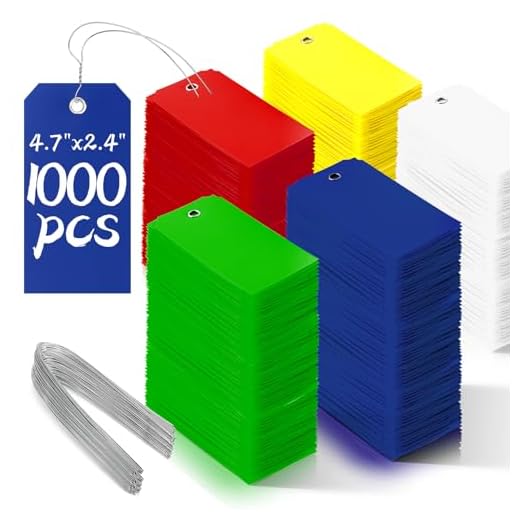







Placing identification details on travel bags is a prudent choice for reducing the risk of loss. A well-placed name tag increases the chances of reunion with misplaced belongings. Consider including a full name and phone number for quick communication.
Ensure that any labels used are durable and resistant to wear and tear. Using waterproof materials is advisable, as it maintains visibility even under adverse conditions. In addition, opting for discreet labels can minimize the potential for targeting by dishonest individuals.
An alternative approach is to use an internal identification method. Inserting a card with personal details inside the bag ensures privacy while still providing necessary information. This option protects against unauthorized access, while the primary baggage tags remain visible for recovery purposes.
Ultimately, taking steps to identify personal belongings fosters peace of mind during travels. Securely marking bags can mitigate stress and streamline the process of locating misplaced items, leading to a more favorable travel experience.
Safety and Identification on Personal Bags
Including identifying details on belongings significantly enhances the likelihood of recovering lost items. Utilize a durable tag attached securely to the handle, bearing a name, phone number, and email address. This information allows airline staff or fellow travelers to swiftly notify the owner in case of misplacement.
Privacy Considerations
To safeguard against identity theft, consider a method that limits the amount of personal data shown. Rather than a full address, incorporating only a phone number and an email address can strike a balance between accessibility and privacy. Additionally, avoid using any information that can easily be linked to home locations.
Alternative Solutions
Modern technology offers alternatives like GPS trackers or Bluetooth-enabled devices that can track items in real-time. These solutions provide discreet monitoring, reducing reliance on publicly displayed identifiers. This method ensures privacy while maintaining a retrieval strategy in case of loss.
Understanding the Risks of Not Labeling Your Luggage
Failure to clearly identify travel bags heightens the chances of losing possessions. Without proper labels, retrieval becomes an arduous process, leaving travelers vulnerable to frustration and potential financial loss. In transit scenarios, unmarked items can quickly become unclaimed and lost among a sea of similar-looking cases.
Financial Impact
The absence of effective identification can lead to costly outcomes. Replacement clothes, toiletries, and essentials may accumulate expenses that were initially avoidable. Travelers can expect unexpected costs if their checked items are delayed or lost entirely, hindering plans.
Potential Safety Concerns
Unmarked cases can pose safety risks. Some travelers may inadvertently receive mixed luggage, leading to security complications. Confusion may arise around ownership, raising questions about personal safety and property violations.
| Risks | Consequences |
|---|---|
| Losing belongings | Financial loss due to replacements |
| Confusion with others’ bags | Security issues and delays |
| Inability to retrieve lost items | Extended waiting or total loss of possessions |
Considering the possible repercussions, travelers must assess the avoidance of labeling strategies seriously. Enhancing the likelihood of identifying cases promptly mitigates risks significantly. For additional gear optimization, check out this best digital camera compatible with mac to capture those important memories on the go.
Best Practices for Writing Your Contact Information
Select a simple format that ensures readability. Clearly display your name, phone number, and email address. Use a legible font size and keep the text to a single side of the label for clarity. Avoid including sensitive data like home addresses for security reasons.
When crafting this label, opt for a durable, water-resistant material. Consider plastic tags or laminated paper to withstand various conditions during transit. In addition, avoid decorative fonts that may hinder quick identification.
Encapsulating relevant details is beneficial. Provide alternate contact methods, such as a backup phone number or a contact person, ensuring someone can reach you if necessary. Using a combination of methods strengthens the chances of swift recovery.
A color-coded system can effectively differentiate travel purposes. Bright, eye-catching colors enhance visibility in crowded areas, making it easier for airline staff and others to identify ownership.
For those seeking quality products, check out the best luggage stores san francisco to find suitable tags or options tailored to personal needs. For maximizing space within baggage, explore the best luggage compression sacks divoders for more efficient packing solutions.
Alternative Ways to Identify Your Luggage Without Personal Info
Consider using colorful, personalized luggage tags that don’t display any sensitive details. Bright colors or unique designs can make suitcases easily identifiable among others on a carousel.
Use Unique Identifiers
Implement coded identifiers like initials or a tagline that holds personal significance. This allows for easy recognition while keeping private data safe. Pair this with a QR code that links to a secure online profile with contact details instead of listing them directly on the bag.
Opt for Smart Technology
Smart baggage trackers provide real-time location data through a mobile app. This high-tech solution enhances the chances of recovery without including personal details on the exterior. Many models include alarms for misplaced bags, adding extra peace of mind while traveling.
How Privacy Concerns Impact Luggage Labeling
Incorporating personal data on baggage can elevate the risk of identity theft and unwanted solicitation. Travelers must remain vigilant regarding privacy while ensuring their belongings are traceable. Here are key points to consider:
Risks of Personal Information Exposure
- Visible labels may attract unwanted attention, especially in busy terminals.
- Personal details can be exploited by individuals with ill intentions if left exposed.
- Identity thieves often monitor baggage areas for accessible information.
Safer Alternatives for Identification
- Use secure identification tags that do not disclose full names or addresses.
- Incorporate unique identifiers, such as a luggage ID number, instead of personal details.
- Consider utilizing technology-based solutions, like digital trackers, that provide anonymity while maintaining connectivity.
Integrating safety measures while retaining a thorough identification system is paramount. Balancing privacy with practicality ensures improved protection for personal belongings during travels.
What to Do If Your Bag Gets Lost Despite Labeling
Report the loss to the airline or transportation service immediately. Provide detailed information about the missing item, including brand, color, size, and any distinguishing features. Complete the necessary forms and obtain a reference number for tracking purposes.
If traveling by air, inquire about the airline’s policy regarding lost items. They often have specific protocols in place to assist passengers. Allow time for the company to conduct a search; this may take several hours to several days.
Check with local lost and found offices at the airport or transportation hub. Sometimes, bags are turned in by staff or other travelers. Keep contact with these offices for updates.
Consider filing a claim for compensation, especially if the bag contained valuable items. Document all contents with photographs if available, and retain receipts for high-value items to support your claim.
Utilize social media to report the loss; some companies respond quickly to public inquiries on platforms like Twitter or Facebook. This can expedite the recovery process.
Stay persistent. Follow up regularly with the airline or transport service to maintain visibility in their system. Frequent communication may increase the chances of a speedy resolution.
If the bag remains missing for an extended period, consider seeking legal advice regarding your rights as a traveler. Understanding consumer protection laws can help navigate compensation issues.
For future trips, consider enhancing identification strategies. Attach a unique identifier, such as a colorful strap or tag, to aid in quick recognition and deter theft.
FAQ:
What are the benefits of putting my contact information on my luggage?
Including your contact information on your luggage can significantly enhance the chances of recovery in case your bag gets lost. If your luggage is misplaced, airport staff or other travelers can easily reach you to return the item. This is especially useful when traveling internationally, where language barriers may complicate communication. Additionally, having your contact details on the luggage can help identify ownership quickly, reducing the time spent in lost and found departments. It can also prevent mix-ups with other travelers, ensuring that your bag is recognized as yours right away.
Are there any risks associated with displaying my contact information on luggage?
While putting contact information on your luggage can aid in recovery, there are some risks to consider. For instance, displaying personal information can lead to privacy concerns, as potential thieves may see it and use your information maliciously. Some travelers opt for a more discreet approach by only including an email address or a phone number without their full name or home address. Another alternative is to use a unique luggage tag that only you can associate with your information, further protecting your privacy while still allowing for identification.
What are some alternatives to traditional luggage tags for providing contact information?
Several alternatives exist if you prefer not to use traditional luggage tags. One option is to use smart luggage trackers that can be linked to your phone. These trackers usually have a feature that allows you to provide contact information accessible through a secure app. Another possibility is using QR codes; you can generate a unique code containing your contact details that can be scanned by anyone who finds your luggage. This method still provides necessary identification without openly displaying personal information. Additionally, some travelers choose to write their contact details on a piece of paper inside their bags, which is also a practical way to ensure your information is available without being visible to others.







